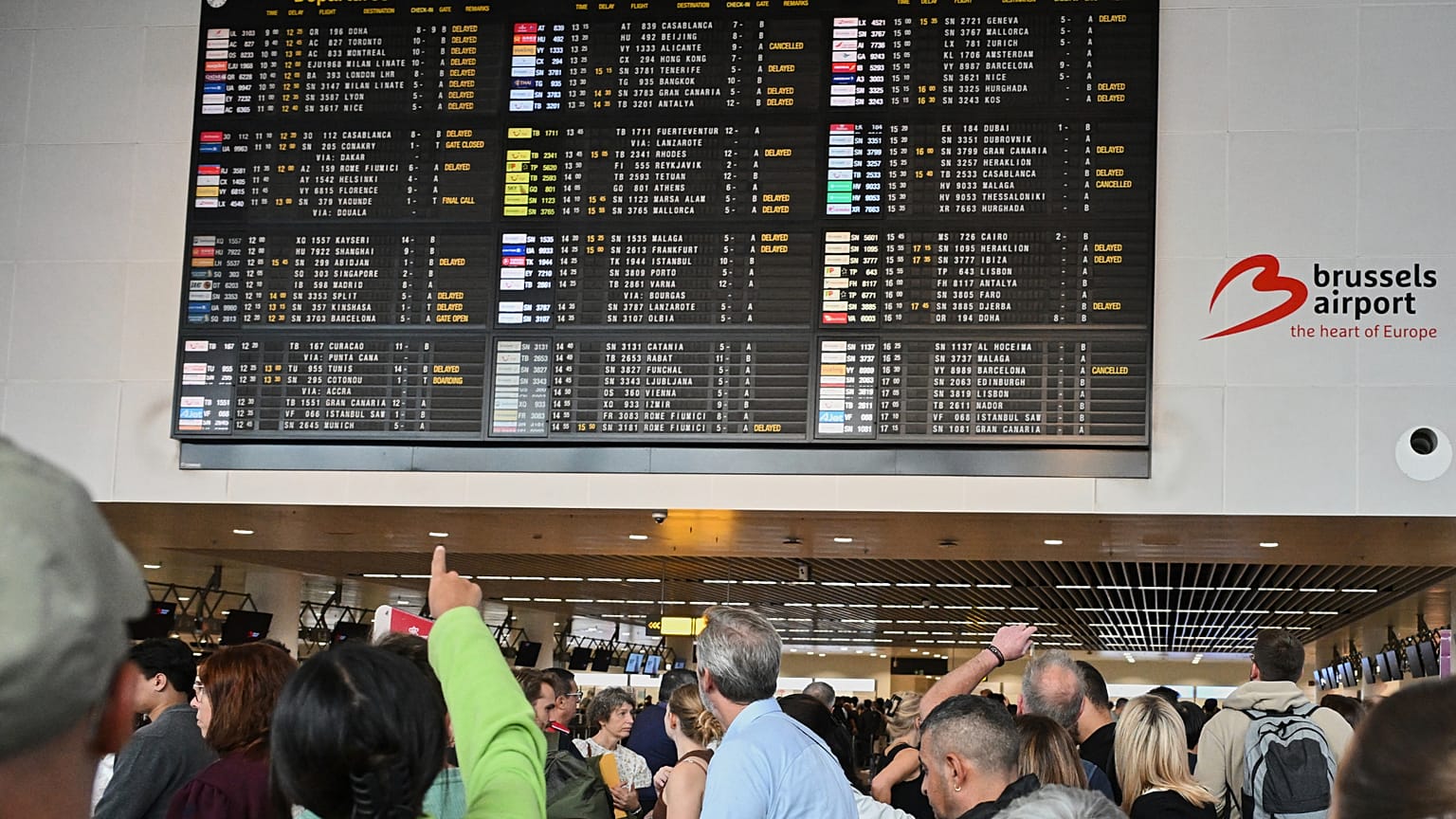45 departuring and 30 arrival flights were cancelled at Brussels Airport on Sunday, with more cancellations expected to follow on Monday. No major cancellations or delays for London's Heathrow and Berlin's Brandenburg airports.
Brussels Airport, which faced considerable issues following late Friday's cyberattack that disrupted electronic systems in several European airports, requested airlines to cancel half of their flights for an additional day on Monday.
On Sunday, the airport cancelled 45 outbound and 30 inbound flights, more than double the number of flights cancelled a day earlier, 25 departures and 13 arrivals.
It remains unclear when the situation will be fixed, spokesperson for Brussels Airport Ihsane Chioua Lekhli said, "We're taking it day by day.”
The two other impacted airports, in London and Berlin, also saw the fallout from the cyberattack on check-in systems for a second day on Sunday.
Berlin's Brandenburg Airport stated that problems persisted with the software, but that it had found a manual workaround, which meant the airport did not face any major delays or cancellations.
The airport did warn passengers of longer waiting times, "Please use online check-in, self-service check-in and the fast bag drop service," a message on the airport's website read.
Departure boards for London's Heathrow, Europe's busiest airport, were also showing signs of smoother arrivals and departures.
“Work continues to resolve and recover from Friday’s outage of a Collins Aerospace airline system that impacted check-in,” a Heathrow statement said. “We apologise to those who have faced delays, but by working together with airlines, the vast majority of flights have continued to operate.”
The airports advised passengers to check their flight status before travelling to the airports, and to use alternative check-in methods.
Starting late Friday, the three airports were hit by the cyberattack. The attack did not target specific airports or airlines, but instead affected the software of Collins Aerospace, whose systems help passengers check themselves in, print boarding passes and bag tags, and dispatch their luggage from a kiosk.
It remains unclear who was behind the cyberattack. However, the European Commission confirmed that aviation safety and air traffic control were unaffected and said there is no indication of a widespread or severe attack.















